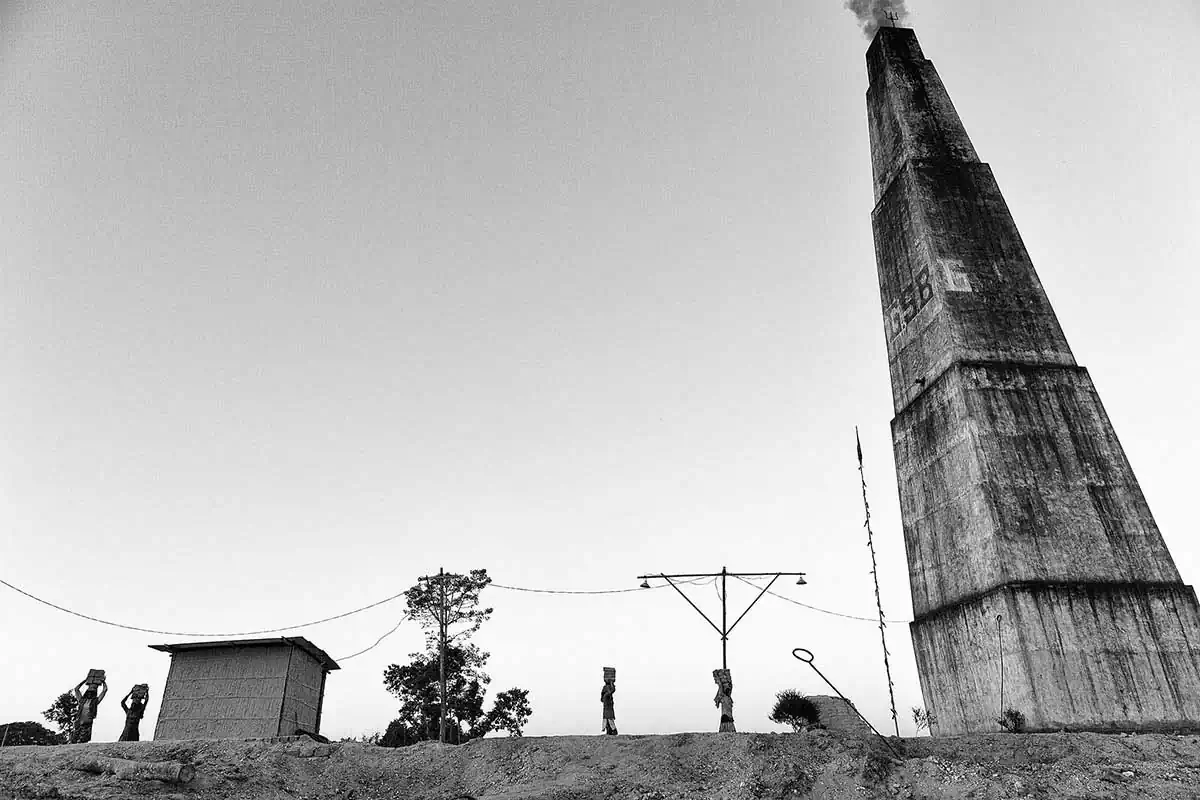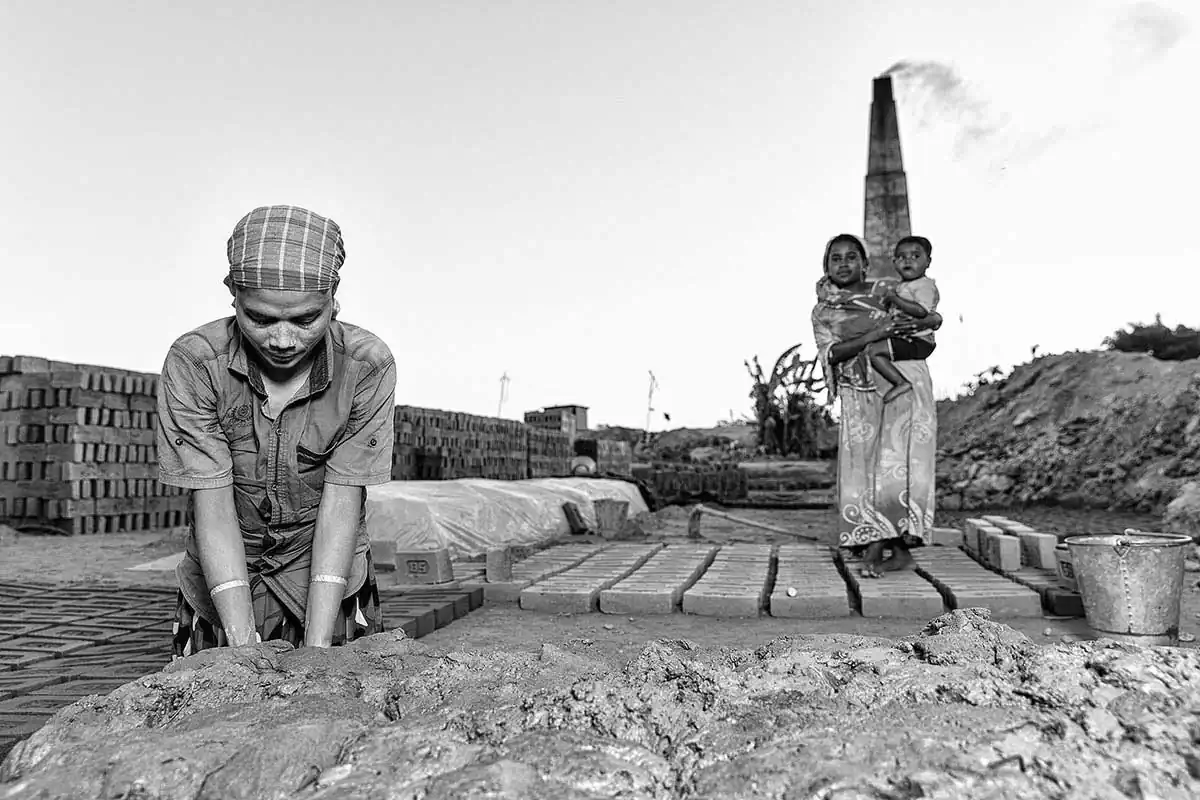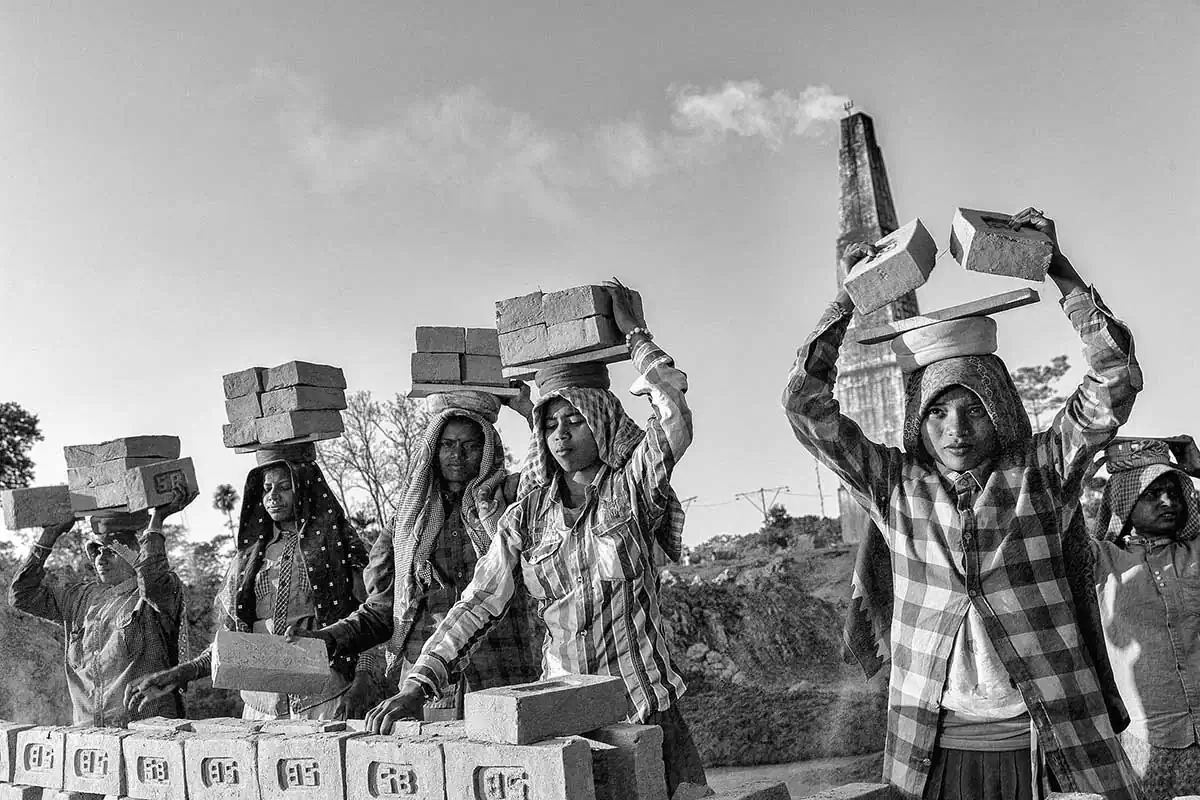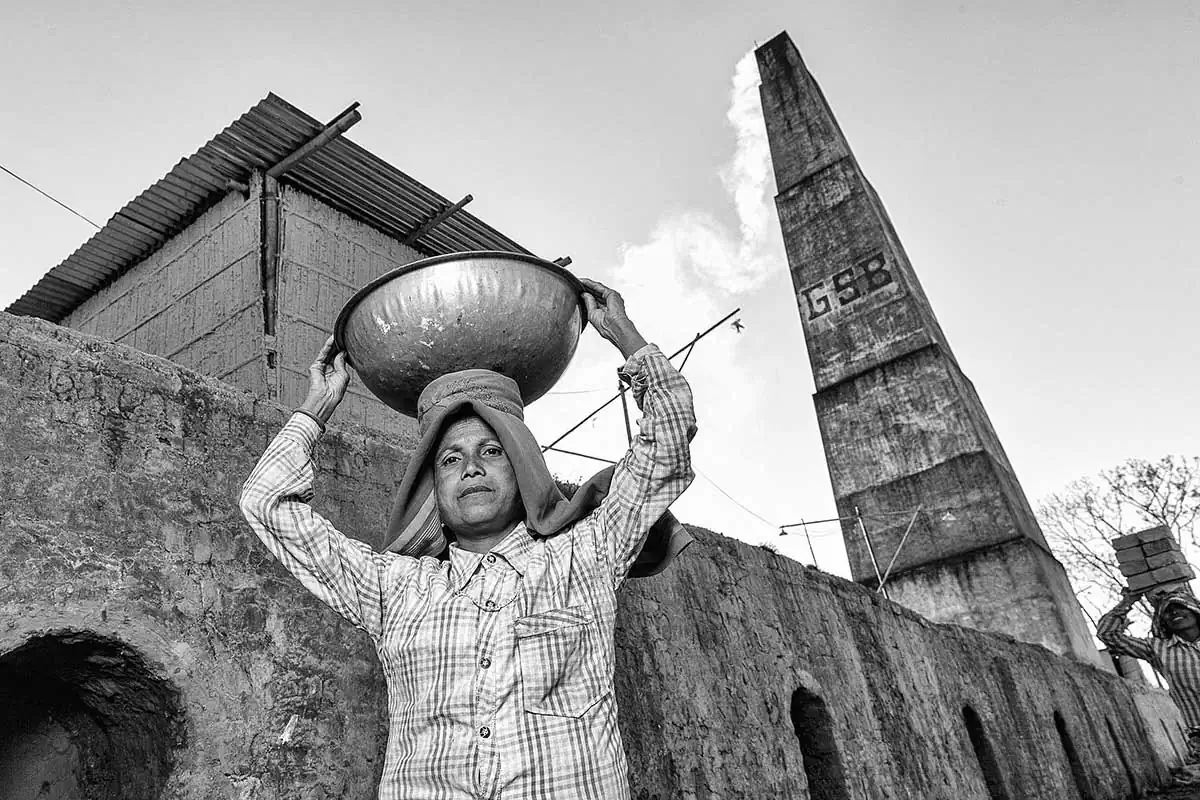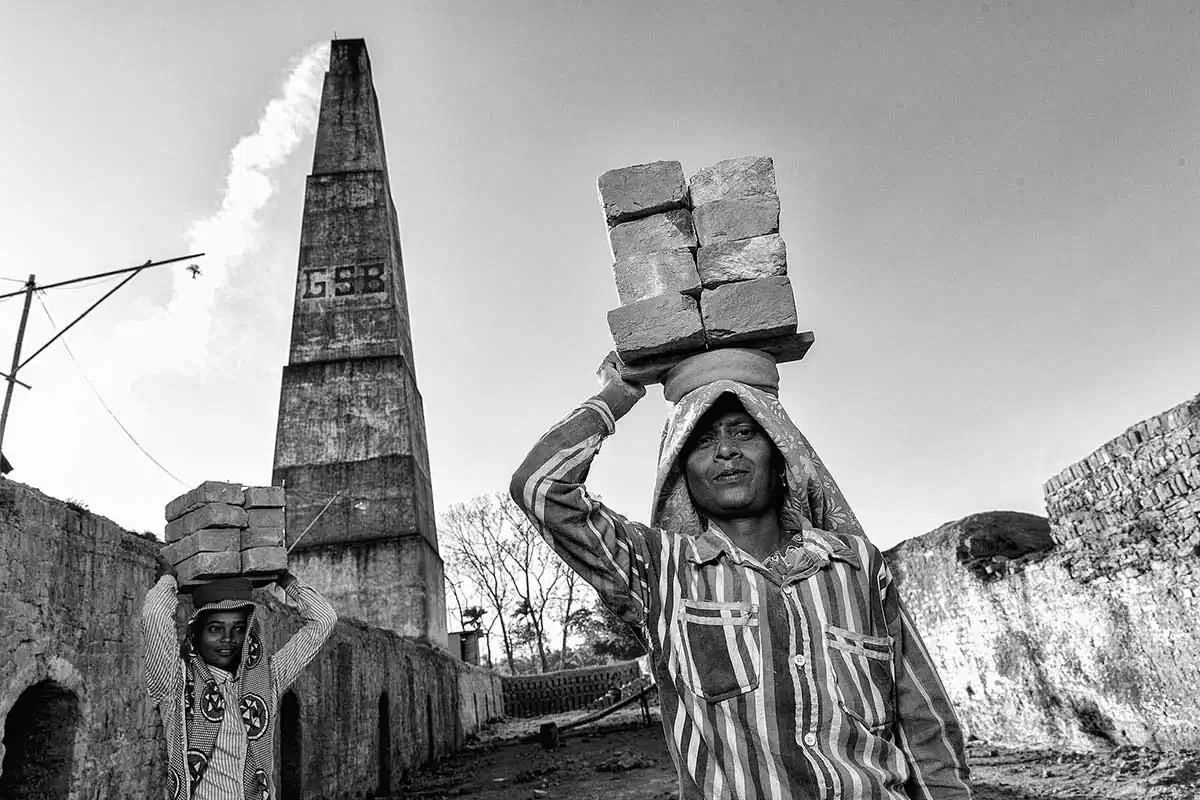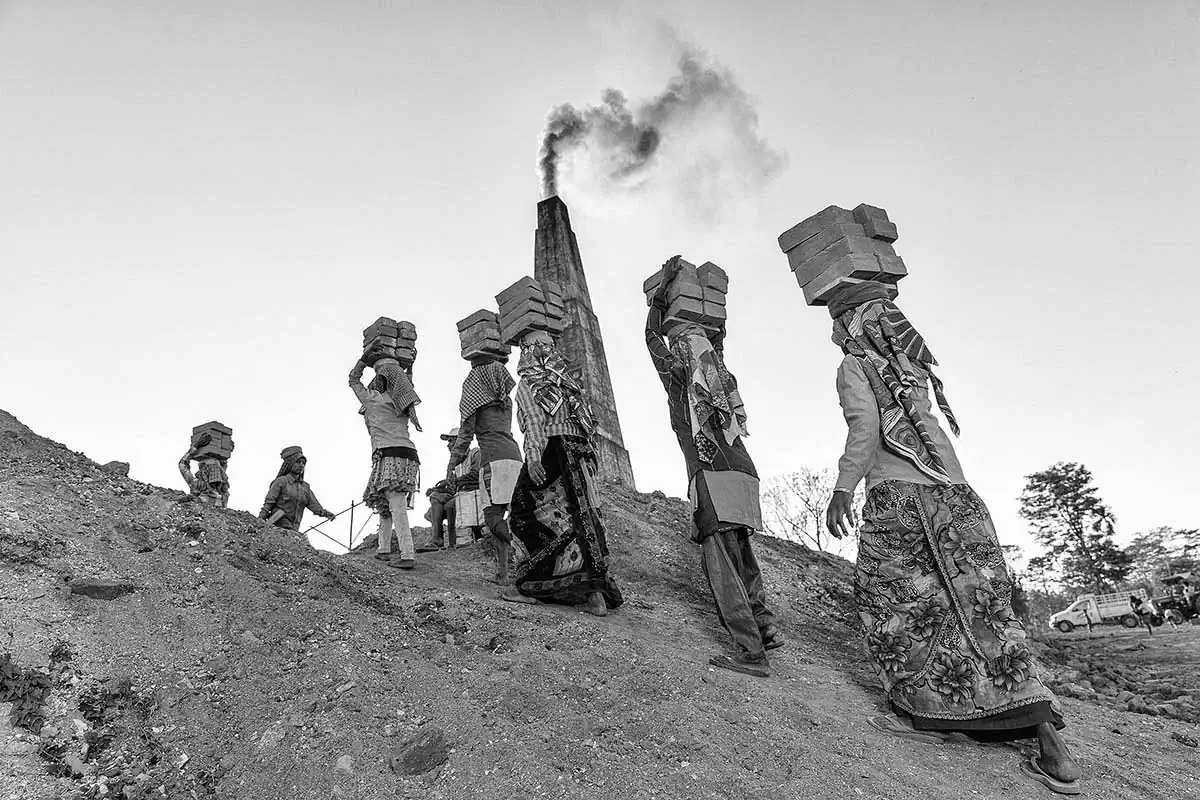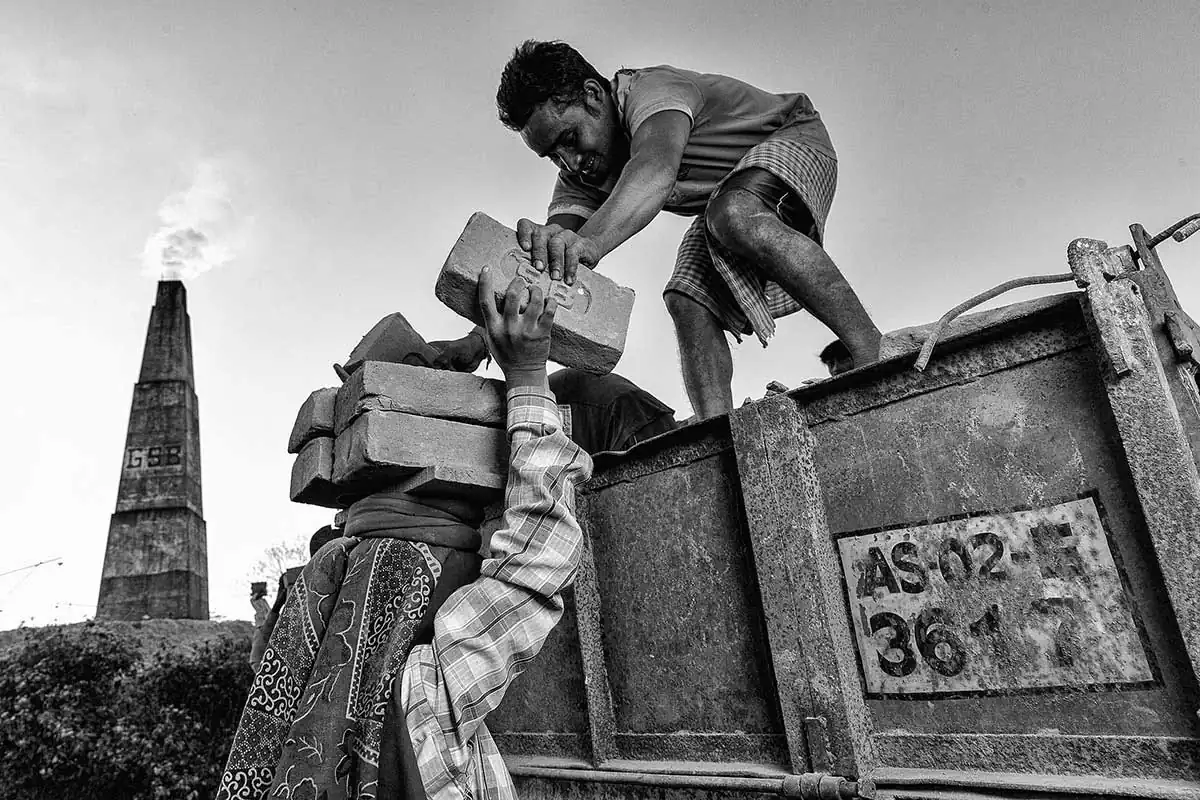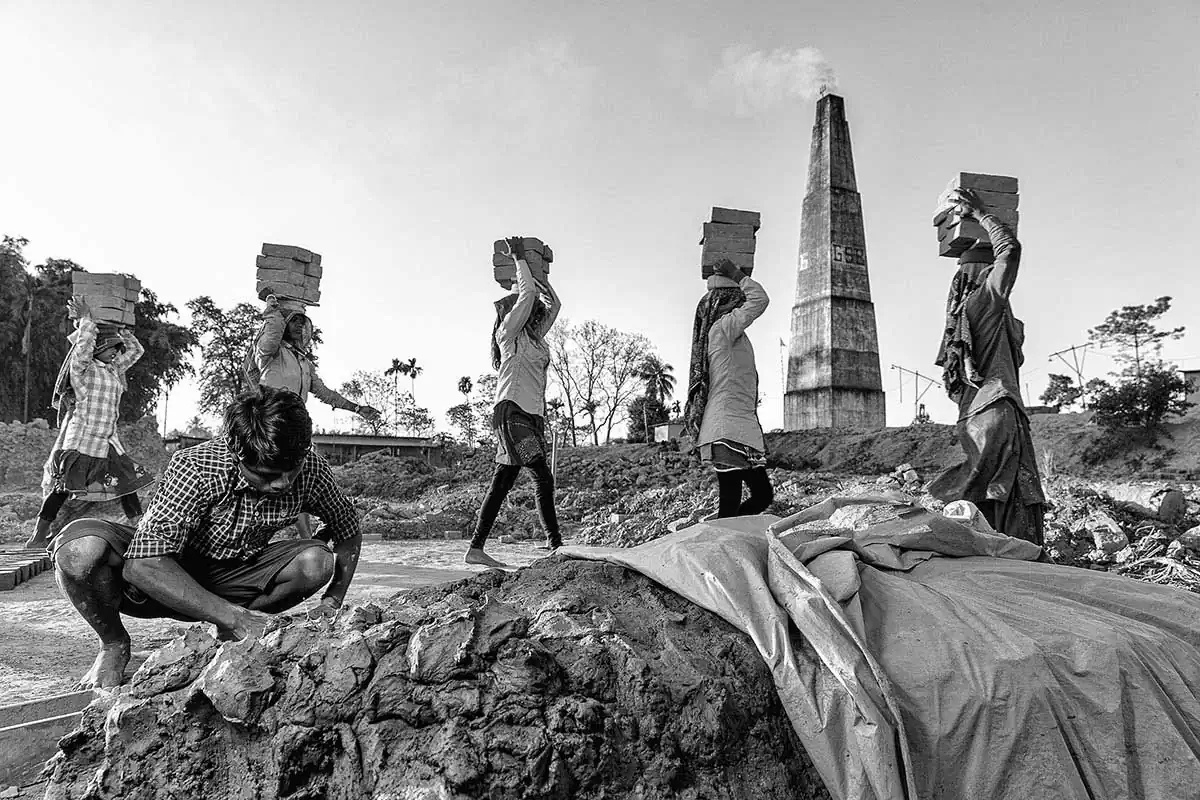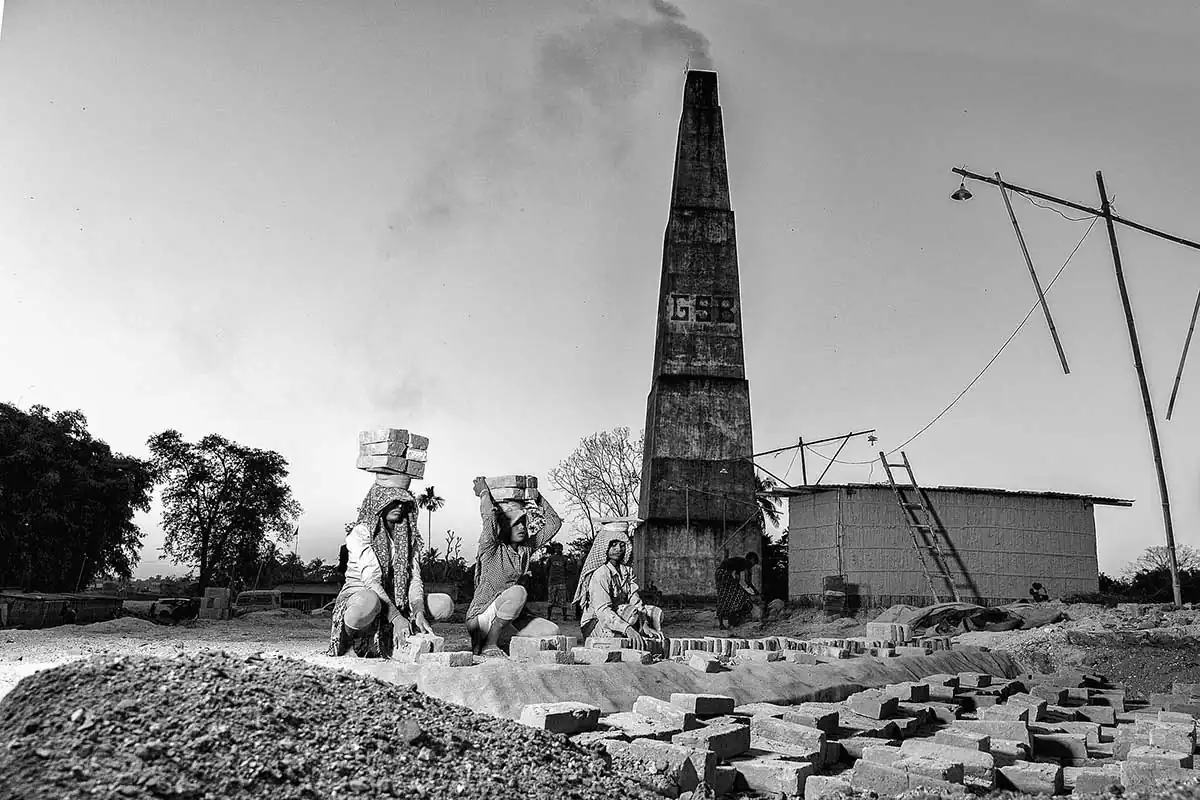Brick-Klin means a Kiln in which blocks of clay are baked into bricks.
The women workers in the brick industry are subjected to extreme working conditions and poor remuneration.
Currently in India, brick manufacturing is a labour-intensive sector, with crude techniques causing considerable worker drudgery. They are also exposed to high concentrations of Respirable Suspended Particulate Matter (RSPM), during monitoring and regulating the fire, as the furnace chamber is covered with ash (ash acts as insulator).
As well as during the manual mixing of fly ash and clay and due to the open dumping and storage of fly ash. Transportation of bricks is done by a head load of 9 to 12 kgs causing health problems, especially in women. Even though the brick workers are exposed to these occupational hazards, coverage under any sort of insurance or medical facilities is virtually unheard of.
In the brick sector, labour is brought in through a contractor (from distant places). Since they are not on the payrolls of the kiln owner, they are not covered under the current labour laws. The work force is paid on basis of quantum of work and against completion of certain tasks such as moulding of 1000 bricks, transportation of 1000 green bricks etc. The seasonal nature of brick production generates employment for a limited period of six – seven months in a year. Majority of the workforce has no option, but to engage as labourers (generally as agricultural labourers) for the rest of the year. [Official Website]
